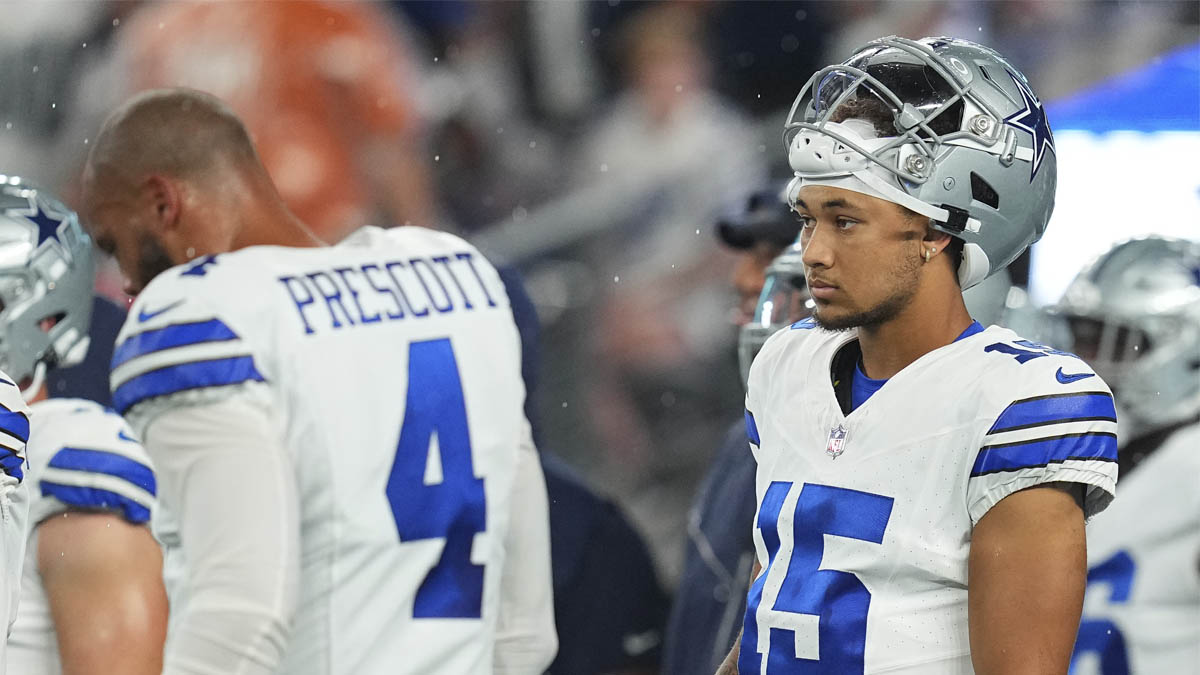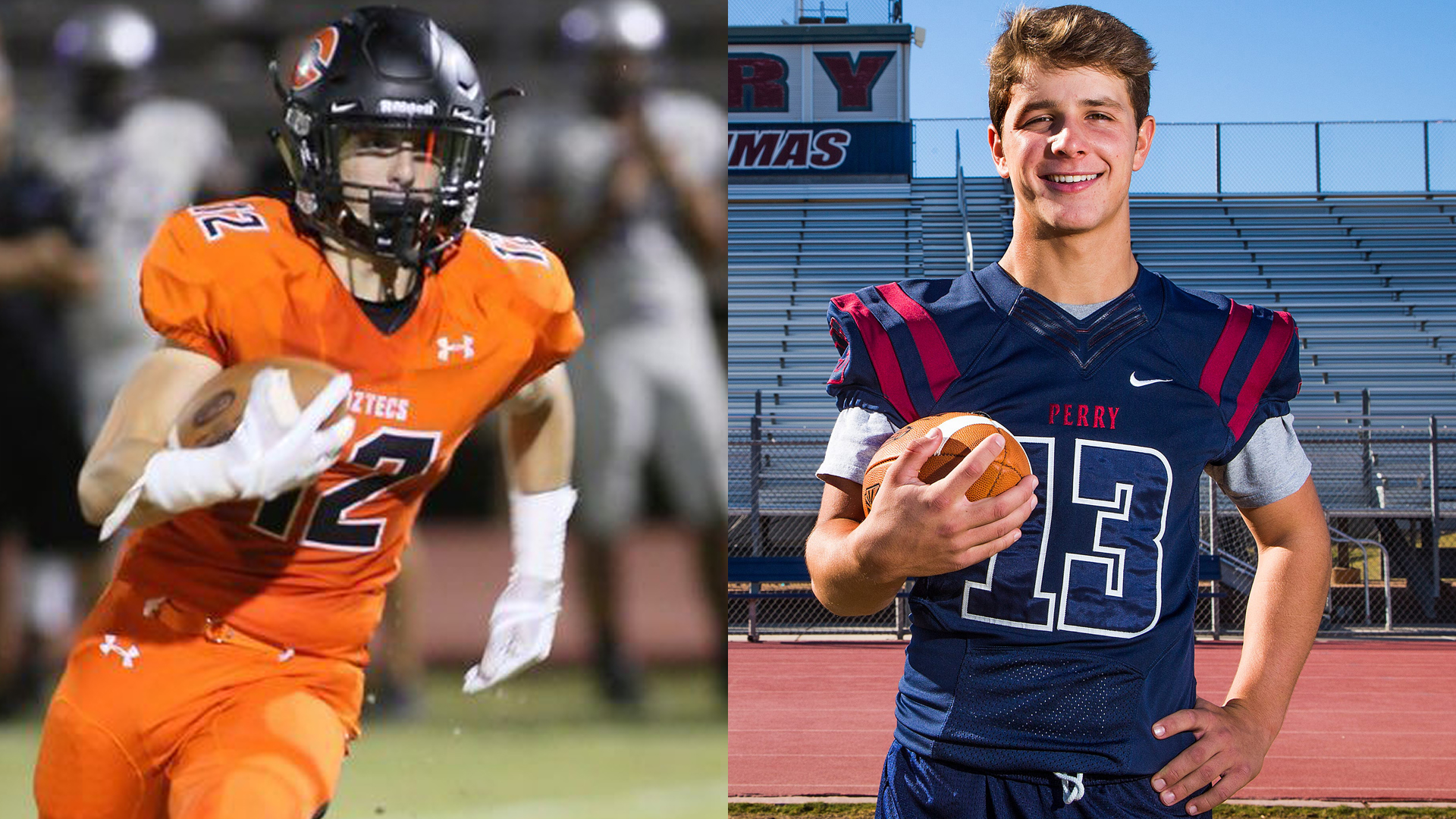Barret Robbins was 29 years old before his mental health issues were properly diagnosed. There were warning signs that something wasn’t quite right well before then, especially when compounded with excessive substance abuse.
Those issues resulted in run-ins with the law, including one while at TCU where he broke a car dealership window and was arrested for burglary. Robbins was given probation and allowed to play his senior season, after which the TCU medical staff diagnosed him with depression.
Another came in the center’s second season with the Raiders, after he was sent home from a game at Denver that he was found in no condition to play after missing the bus to a team walk-through. Robbins flew home commercial, but never boarded a connecting flight following a layover in Utah. He went outside the airport, got into a hotel shuttle and sat down in that lodging’s restaurant without a dime to his name. He got arrested for trying to dine and dash, and his girlfriend eventually flew out, picked him up and took him home.
Stay in the game with the latest updates on your beloved Bay Area and California sports teams! Sign up here for our All Access Daily newsletter.
With the welcome benefit of hindsight, Robbins beleives he was in manic episodes during these incidents and out of control.
“If when I got into a manic episode I can ask for help, I’d be OK,” Robbins said in an interview with NBC Sports Bay Area’s Greg Papa in 2011. “But when I go into a manic episode, it’s not in me to ask for help. It doesn’t happen that way. That’s the frustrating part about it. I know what’s going on, but I’m not conscious of my decisions. I’m just basically sleepwalking. That’s really what it is. That’s what it amounts to.”
[SPORTS UNCOVERED: Listen to the latest episode]
People with depression aren’t prone to manic episodes. Robbins was recognized as having depression and medicated based upon that diagnosis in college and in the pros.
NFL
“All I ever heard was depression,” Robbins said. “They put me on some medications and, you know, let me see a doctor and stuff like that. But I still never once heard the word bipolar. Never once heard the word bipolar until after the Super Bowl.”
Robbins is referring to Super Bowl XXXVII between the Raiders and Tampa Bay Buccaneers, a game he missed after going on a bender in San Diego and Tijuana two nights before.
That incident, and the underlying mental health issues that caused it, are detailed in the latest episode of NBC’s Sports Uncovered podcast, which debuted on Thursday.
Robbins was evaluated the Saturday night and Sunday morning before the Super Bowl by team doctors at the La Jolla Hyatt and interviewed by top officials, all of whom decided he wasn’t able to play the championship game in San Diego. Robbins was sent to a local hospital and put on suicide watch, and eventually ended up at the Betty Ford clinic in Riverside.
It was only then that Robbins was properly diagnosed with bipolar disorder.
“What was great – well, not great – but what felt good for me is that it explains some of these incidents I’ve had,” Robbins said. “And it put a label, it put a tag on that, because it was previously unexplained for me.”
In his interview with Papa, Robbins detailed moments where he believes he was manic before being diagnosed. He also discussed moments of extreme depression that are also part of being bipolar.
“I can remember one day, or almost a month of the offseason where I couldn’t get out of bed,” Robbins said. “I mean, to think a man could have a $2 million house and $500,000 worth of cars and whatever he wanted and still be depressed and not be able to get out of bed [seems unreal]. That tells you that depression is very powerful, and it crippled me for a long time.
“Football would always get me there. Football is my love. If I was going to go play football that day, I would be OK, you know? I would be able to get out of bed.”
Bipolar individuals misdiagnosed as having depression can cause significant problems, according to Decartes Li, M.D., director of the bipolar disorder program at UCSF.
“Antidepressants, the medications as a class have not been shown to be helpful for people having bipolar disorder, in particular when they’re having mania or hypomania,” Li said. “In fact, there have been some studies that show antidepressants can trigger manias or hypomanias, to cause them to kind of overshoot.
“What happens is that, when you get the person with bipolar disorder and give them lots of antidepressants, you can either make them worse or you’re not doing anything and not actually helping them in the long run.”
[RELATED: Brown blames Callahan for Robbins missing Super Bowl]
Li also said that these cases can develop “mixed episodes,” meaning they have mania and depression at the same time. Li said they can be triggered by antidepressants or other substances. Ingesting narcotics like hallucinogens or heavy doses of marijuana -- Robbins admits to at times heavy marijuana and alcohol consumption -- during mixed episodes or outside them can make things more severe or worse over time.
“For people who go through these mixed episodes, they can be really bad,” Li said. “If you can imagine, you’re feeling kind of depressed or suicidal, that’s some depressive symptoms. The you can have some of these manic symptoms while you’re depressed or suicidal, you have racing thoughts and can be really impulsive. … You could see how that’s really bad for the individual who with really high risk.”


